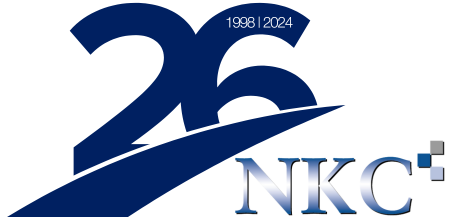Payroll Updates
We're committed to keeping our clients informed about the latest changes in employee compensation and benefits. Below, you'll find a summary of recent updates, including changes to pension enrollment, tax guidelines for pension lump sums, mandatory employer reporting details, and new provisions for leave related to medical care and breastfeeding. Staying updated with these changes is essential for smooth business operations and ensuring the well-being of employees.
Auto Enrolment Pensions
The new auto-enrolment pensions savings scheme which was due to commence in January 2024 has now been postponed until September 2024.
Initial contributions will be 1.5% of gross income. This amount will be increased on a phased basis over 10 years with 1.5% added every 3 years until a total of 6% is reached.
As an employer, you’ll match your employees’ contributions and the pension will also be topped up by the State at 33%, with employer and State contributions capped at €80,000 of earnings.
Here’s how contributions will be raised over the 10 years:
| Year | Employee | Employer | State |
|---|---|---|---|
| 1 to 3 | 1.5% | 1.5% | 0.5% |
| 4 to 6 | 3% | 3% | 1% |
| 7 to 9 | 4.5% | 4.5% | 1.5% |
| 10+ | 6% | 6% | 6% |
Pensions Manual Chapter 27 Amended
Chapter 27 of the Pensions manual has been updated to provide further information on the tax and filing obligations for excess lump sums (i.e. the amount of any lump sum which exceeds the €200,000 tax-free lifetime limit).
Any excess amount of a lump sum between €200,000 and €500,000 is taxed at the standard rate (20%) and this tax should be returned to Revenue on a Form 790AA within 3 months of the end of the month in which the lump sum is paid to the individual. This portion of the excess lump sum or the tax due on it should not be included on a payroll submission.
Any excess amount of a lump sum which exceeds €500,000 is taxable at the individual’s marginal rate through payroll which should be returned by the pension administrator to Revenue on a Payroll Submission.
Enhanced Reporting
The introduction of mandatory reporting by employers of certain payments/benefits made to employees and directors. It is an extension to the real-time reporting of payroll, with phase 1 due to commence on 1 January 2024.
Where an employer makes one or more of the following payments to employees/directors without deduction of tax, they will be required to electronically notify Revenue of the payment on or before the date the payment is made:
· The remote working daily allowance of up to €3.20 per day,
· The payment of travel and subsistence expenses, and/or
· Small benefits covered by the small benefit exemption.
It is only expenses/payments which are made to employees that will be reported. Hence where an employer pays expenses directly to the provider (e.g. company credit card, corporate account for accommodation, fuel cards, toll tags, etc.) such payments will not be reported as they do not involve a payment to the employee.
Leave for Medical Care Purposes
Since 3 July 2023, The Parental Leave Acts 1998 to 2019 has been amended to provide for up to 5 days unpaid leave (in any 12 consecutive months) for medical care purposes for the purpose of providing personal care or support to a relevant person (i.e. a spouse, civil partner, cohabitant, parent, grandparent, brother or sister of the employee, etc.). There is no qualifying period of employment to avail of this leave, and it must be taken in periods of not less than 1 day. Leave for medical care purposes will be in addition to Force Majeure leave and Carer’s leave.
Extension of Entitlement to Avail of Breastfeeding Breaks
Employees who are breastfeeding are entitled to time off from work or a reduction of working hours for up to 1 hour per day for breastfeeding. Since 3 July 2023, the time period for availing of this leave has been extended from 26 weeks following the birth of the child to 104 weeks following the birth of the child.
If you would like to discuss any of the above in detail please contact Phil in our payroll department.

